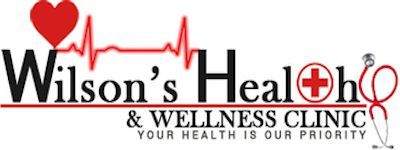Annual Wellness Exam
The Annual Wellness Visit (AWV) is a yearly appointment with your primary care provider (PCP) to create or update a personalized prevention plan. This plan may help prevent illness based on your current health and risk factors. Keep in mind that the AWV is not a head-to-toe physical.
Call (770) 864-5538

Covered Services
First Visit
During your first Annual Wellness Visit, your PCP will develop your personalized prevention plan. Your PCP may also check your height, weight, blood pressure, and other routine measurements.
Health Risk Assessment
This may include a questionnaire that you complete before or during the visit. The questionnaire asks about your health status, injury risks, behavioral risks, and urgent health needs.
Review Functional Ability & Level of Safety
This includes screening for hearing impairments and your risk of falling.
Your provider must also assess your ability to perform activities of daily living (such as bathing and dressing), and your level of safety at home.
Your Medical & Family History
Make a list of your current providers, durable medical equipment (DME) suppliers, and medications.
Medications include prescription medications, as well as vitamins and supplements you may take
Written 5-10 Year Screening Schedule or Check-list
Your PCP should keep in mind your health status, screening history, and eligibility for age-appropriate, Medicare-covered preventive services
Screen for cognitive impairment, including diseases such as Alzheimer’s and other forms of dementia
Medicare does not require that doctors use a test to screen you. Instead, doctors are asked to rely on their observations and/or on reports by you and others.
Written 5-10 Year Screening Schedule or Check-list
Your PCP should keep in mind your health status, screening history, and eligibility for age-appropriate, Medicare-covered preventive services
Screen for cognitive impairment, including diseases such as Alzheimer’s and other forms of dementia
Medicare does not require that doctors use a test to screen you. Instead, doctors are asked to rely on their observations and/or on reports by you and others.
Screen for Depression
Provide health advice and referrals to health education and/or preventive counseling services aimed at reducing identified risk factors and promoting wellness
Health education and preventive counseling may relate to weight loss, physical activity, smoking cessation, fall prevention, nutrition, and more.
AWVs after your first visit may be different. At subsequent AWVs, your doctor should:
- Check your weight and blood pressure.
- Update the health risk assessment you completed.
- Update your medical and family history.
- Update your list of current medical providers and suppliers.
- Update your written screening schedule.
- Screen for cognitive issues.
- Provide health advice and referrals to health education and/or preventive counseling services.
Our Complete List of Health Care Services
Annual Wellness Exam
The Annual Wellness Visit (AWV) is a yearly appt with your primary care provider (PCP).
Child | School Physicals
Offering complete physical exam, complete review of medical history, and much more.
Women Exams
A well-woman visit is all about your body and reproductive health, a.k.a. gynecological exams, pelvic exams, or annual exams.
Acute Care Visits
Acute care is a branch of secondary health care where a patient receives active but short-term treatment for a severe injury or episode of illness.
Immunizations
Shots may hurt a little, but the diseases they can prevent are a lot worse. Some are even life-threatening. Shots, or vaccinations, are essential.
Lipo B12 Injections/Weight Management
By definition, a lipotropic substance decreases the deposit, or speeds up the removal of fat within the liver.
Medication Management
Medication management is the level of outpatient treatment where the sole service rendered is by a qualified physician.
Labs
A medical/clinical lab is one where tests are made on clinical specimens to obtain info about the health of a patient for diagnosis, treatment, and disease prevention.
